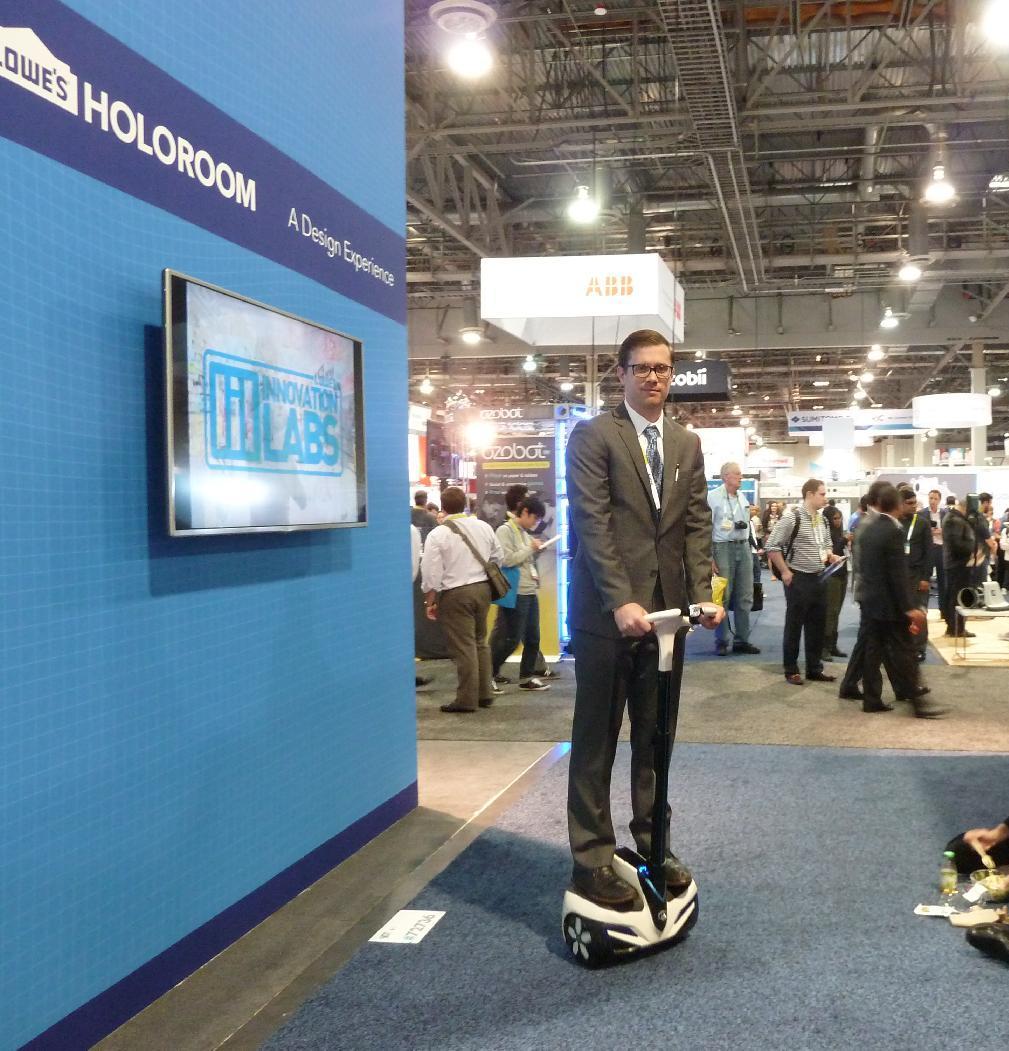New transport options aim to be ‘un-Segway’
A host of newfangled wheeled devices unveiled this week offer innovative solutions to urban transport which could fulfill the failed ambitions of the Segway. At the Consumer Electronics Show in Las Vegas, developers showed off several self-balancing wheeled contraptions that aim to provide environmentally friendly short-distance transport. California startup IO Hawk used the show to launch its “intelligent personal mobility device,” a small platform with two wheels and self-balancing technology which can be easily learned “by everyone from a five-year-old to an 81-year-old with muscular dystrophy,” said company president John Soibatian. While the $1,800 device could be viewed as a lightweight Segway — it weighs just 10 kilograms — Soibatian dismisses parallels to the Segway, which launched in 2002 and never lived up to hype of revolutionizing urban mobility.
This is not a Segway. There are no handlebars. You don’t look weird. You can pick this up and throw it in your car, take it to work, take it on the train.
IO Hawk president John Soibatian
Other companies focused on the ‘next Vespa’, weight-sensing electric skateboards with regenerative braking and ‘rocket skates’. French startup Rollkers showed off its connected roller skates which can be slipped over shoes to propel users up to 12km/hr. Israeli startup The Green Ride, which has created a very light scooter-like vehicle, plans to go to market in Europe, North America and Australia. And California startup Acton showed another set of roller skates called “rocket skates” as well as a three-wheeled scooter than can be folded up and carried.
We got into this to solve the problem of the last mile. A lot of people use their car because it’s too far to get to the train station, we have a lot of gaps in public transportation.
California startup Acton’s Peter Treadway

Technology CES